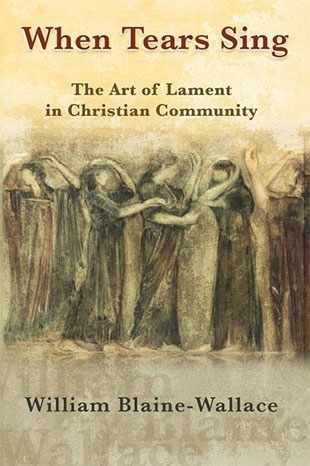In many Christian churches, lamenting is underplayed and often ignored completely. Given the fact that American culture tries to evade the nation's racial injustice and rampant prejudice and violence, it is no wonder that so many religious peoples have little interest in prayers, worship services, or rituals built around suffering and pain.
When our hearts, minds, and emotions call us to weep over the harm done to Native Americans, blacks, Asian peoples, and others, we turn to the writings of James Baldwin, Richard Wright, Maya Angelou, Ralph Ellison, and others or to films such as 12 Years a Slave, Fruitvale Station, Rosewood, Ruby Bridges, and Selma.
William Blaine-Wallace, an Episcopal priest and pastoral counselor, is the author of Water in the Wastelands: The Sacrament of Shared Suffering. He has ministered in parishes, hospices, and in mental health and educational settings. In this paperback, he writes:
"When tears sing, hearts are opened. Open hearts are more susceptible to the pain in, around, and beyond us. Lamentational communities are challenged, as spiritual teacher Ram Dass reminds us, 'to keep our hearts open during the hurricane.' How do we keep our hearts alive in a hurting world that breaks through filters that keep us from being overwhelmed? Confession and prayer keep us more vulnerable to and available for the world-the-way-it-really-is."
Blaine-Wallace presents a few of the programs and courses that have been used to develop lamentational relationships. He begins, inspired by a poem by Yehuda Amichai (see excerpt), by issuing an invitation to convene "in order to learn how to create space, conditions, and contexts that enable our tears to make a more resonant and joyous song." He then examines the seven dynamics of lament-based activity: silence, listening, alterity, hospitality, reiteration, making absence, and curiosity.
As religious communities and families try to find ways to respond to the suffering and grief brought on by the COVID-19 pandemic, When Tears Sing has great relevance.
